Notes from the Wayback Machine
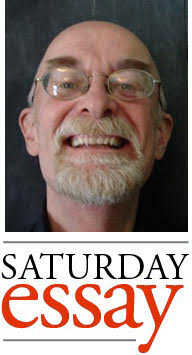 Most of us emerge from infantile amnesia around the age of three. Until then our memories are catch and release. After that some stick, some don’t, until, alas, we come full circle. Unsettlingly, what we do recall is not the original event, but our last memory of that event, not something etched in stone or set in amber, but fuzzing at the edges and swapping facts like stage props, our solo game of “Telephone” played across time.
Most of us emerge from infantile amnesia around the age of three. Until then our memories are catch and release. After that some stick, some don’t, until, alas, we come full circle. Unsettlingly, what we do recall is not the original event, but our last memory of that event, not something etched in stone or set in amber, but fuzzing at the edges and swapping facts like stage props, our solo game of “Telephone” played across time.
My first memory, as far as I can remember, is being held on my mother’s hip as she stood in the water at a public beach on the south shore of Lake Superior. I was looking down her one-piece suit at her breasts. Having never been suckled, this may have seemed a novel and compelling sight. Something worth remembering.
Decades fly by and summers pass like weekends. But between the ages of three and thirteen time was much-expanded. Time lost, but if the trigger’s found it’s not for sure forgotten.
My family moved when I finished kindergarten so there’s a clear line defining before and after. Subtract my amnesiac beginnings and it hardly seems possible a home could hold so much. Here we lived in a frame house with a dirt cellar, damp and spidery. There was a big garden, a half a dozen apple trees and a play house near the garage. This was the center of a universe measured in a few city blocks. Occasionally the quiet would be broken by distant explosions at the Dupont plant, where, I was told, they were testing dynamite.
Here I learned to ride a bike, learned a toy tractor cannot be pedaled through real dirt, learned throwing rocks at cars was strictly forbidden. Here the gutters swelled with melt-water in spring, and I floated boats carved by my father, who made rocking horses, building blocks, a pull-toy dachshund. Here he made a combination toy-box and cart, complete with steering wheel and an instrument panel equipped with cast-off electrical bits, including a cord I was shocked to learn should not be plugged into the wall.
Here I cried over a nickel lost on the way to the corner store. Cried when wetting my pants on the way home from school. Cried when Dad came to the door with a nylon stocking over his head. Ha ha, watch me scare the kids. Here I walked naked and shameless down our stairs with my A.M. woody at a jaunty angle. Sharpened popsicle sticks using my friend’s knife before I was allowed knives of my own. And learned the laws in general by suffering house arrest. Here I chased and fought the cat until scratches twined my forearms, and he liked it. Here Dad brought home a box of snow from Michigan, when we had no snow of our own. Here kindergarten exists deep in my brain cells as a clean and sunlit room, with cold milk in paper cones and mats for Nappy Time.
Here I steered an airplane from my father’s lap, he in the co-pilot seat of my uncle’s buddy’s plane. Dad, holding his hands in the air, said, “Davy’s driving now!” And I guess I saw the President of the United States, but he was a long ways away. I remember the crowd and the hubbub, but not the man himself.
Here I owned a train engine my uncle Wally gave me. Grey with red trim, powered by batteries, with a headlight and a mechanism for producing wisps of smoke, it ran until it hit a wall, then pivoted, and off it went in another direction, sounding its low and comforting whistle. Uncle Wally didn’t have any boys and I suspect that in this present I was reaping the rewards. He was a boisterous drunk, hollering, “Hot Dog!” when entering a room. If that train showed how to turn around when hitting a wall, Uncle Wally never learned the lesson. He was one of my dad’s burly farm-boy brothers, veterans of WW II and not afraid of much, including a beer too many. The farm, mostly retired when I came along, exists among my neurons in a golden haze, smelling of sun-warmed dust. Here I swung on a rope in the hayloft. Fished for trout in the river. Picked strawberries when I was so small it was tough to stay on the ladder.
Here, to celebrate the Fourth of July, my dad and a couple uncles planted dynamite under the chicken coop slouching in a field, and as I stood with my cousin in the garage door they lit the fuse and sprinted toward us beaming the mischievous grins of those who’d tease death, and suddenly it was raining splintered wood. Not as pretty as fireworks, but a man’s man’s thing of beauty sometimes simply goes kaboom. And freedom is a ringing in the ears.
Club 13 was a bar and supper club just outside of town with an excellent peanut butter sandwich, and the Beatles on the jukebox. In town was the Neighborly, good for a cold Orange Crush. Near the Farm was Lutman’s, and if ever there was a wholesome Wisconsin tavern fit for children, it was run by Bill, who, for our amusement, held up two empties like binoculars pointed toward the lake, asking, “How’s the weather out there?” Followed by his staccato German chuckle rat-tat-tatting across the room. Like the other county taverns we’d visit after fishing, there were off-color illustrations behind the bar. Blueberry handprints on a vixen’s bottom, and that sort of thing. Rustic titty humor, or the one that got away.
We moved when I turned six and lived for less than a year in a rental house as my parents searched for one to buy. Here I entered 1st grade, then Sunday School, where I squirmed with an apostate’s impatience. Here a spooky Weimaraner carried a deer’s head down the sidewalk. Here a gang of kids stoned the house of a woman thought to be a witch. And here I played bat boy for my dad’s kitten-ball team and got bowled over by a base runner rounding third. Dad’s ball shirt said “Jimmy’s,” and his bowling shirt would read “O’Brien’s,” after we’d moved once more.
Now this was the place. When the moving van arrived the snowbanks were over my head. Cars wore orange spheres or flags on their antennas to signal their approach at an intersection. And little yellow jeeps plowed the public sidewalks. Here was our corner house on a double lot with trees too big or small to climb. The best ones for climbing were in our neighbors’ yard. But boundaries were porous, and we were chased away from apples and little else. It was here I walked the half mile to school, and the half mile back, except on rainy days when a row of Mom-mobiles would form at the curb, then sweep us home toward supper. Here my first best friend lived across the street. Here there was a rolling park with a creek and ball field and woods enough to hide in. Our range expanded into bums’ jungles where we ran through the dogwood chasing rabbits with our spears, but never, ever skewered one. We made camps, caught tadpoles, and hid in tall grasses. Rode our bikes, ramping up our dares for the devil. Lobbed everything we had at our nemesis Danny Lucius, aka “ Lucifer,” who would later confirm our suspicions about his bad blood by burning down the lumber yard. Here, he escaped an incursion into my territory by holding me off with a golf club, swung helicopter-style above his head. Here, I waded onto his turf and into his punches. Damn you, Danny Lucius!
Our third grade play was a western. I borrowed my mom’s fringed jacket, donned a cowboy hat, and spoke my one line while comforting Tammy Amborn, the prettiest girl in class. “Nothin’ to worry about, Ma’am … unless we have a stampede.” Here we had a cakewalk in the gym and I won. Life was a cakewalk — and I won! This happened in the 4th grade, as life’s peak was drawing near. Here I was good at math and sandlot games. Here we had a dog who’d fetch the evening news from the paperboy a half a block away. Here I’d rummage through Dad’s junk drawer filled with pocket knives, cufflinks, watches and lighters, and a Nazi flare gun from the war. Here we swapped our black-and-white TV for color, watching too much of both. Here we went from steel pop cans to aluminum, with flip-tops! Here I was captain of the crossing guards, and winner of a poster contest with my safety theme — “Aspirin, Don’t Take Too Many!” And here we filled reams of paper with tanks and planes, ships and submarines. The stars against the swastikas. Here I owned a menagerie of stuffed animals and an arsenal of toy guns. Pistols, both pirate and cowboy, machine guns used by the army, the mob, and the Man from U.N.C.L.E. A German Luger squirt gun. And still the arms race flourished. Here we escalated to real projectiles, from pea-shooters to slingshots to bows and arrows to BB guns. Unfolded paper clips launched from rubber bands were good for a potshot at Danny Lucius. Here we played with gyroscopes and periscopes and boomerangs and brand-new toys called Frisbees. Here we had telescopes and kaleidoscopes, modeling clay and marbles. Plastic farmyard animals and dime-store dinosaurs. Here we played with race-cars, trucks and tractors, and endless army men. “We” made skateboards and push-carts and igloos. (That is, my dad mostly made them.) Here we played badminton and box-hockey, tag and tetherball, hide-and-seek, cops and robbers, and a manhunt variation called “F.B.I.” Here was a corner store with window seats and a welcoming crone, who suffered us with the patience of a saint.
Here we were happy, and it was good. But soon we’d be banished from the garden of grammar school. Sports would become organized, math become complicated, and in awakening to the world we’d acquire our awkward ways.
Currently our grandson lives in the dreamtime of his amnesia. He won’t remember seeing the ocean, or meeting his great-grandpa. But he’s learning grammatical structures and the laws of physics. And being polished like an agate by his mother’s coos and kisses. He’ll emerge in this memorable world and learn to read. Maybe someday see this essay. And if he reads it and remembers, why would all this lost time matter?
I forget.
Recommended Links:
Leave a Comment
Only registered members can post a comment , Login / Register Here


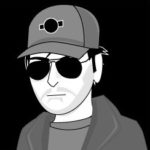
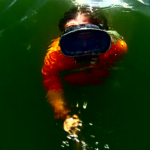


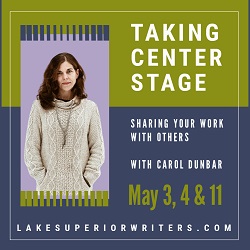

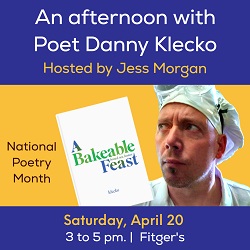
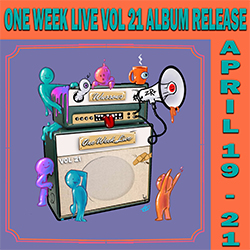

No Comments